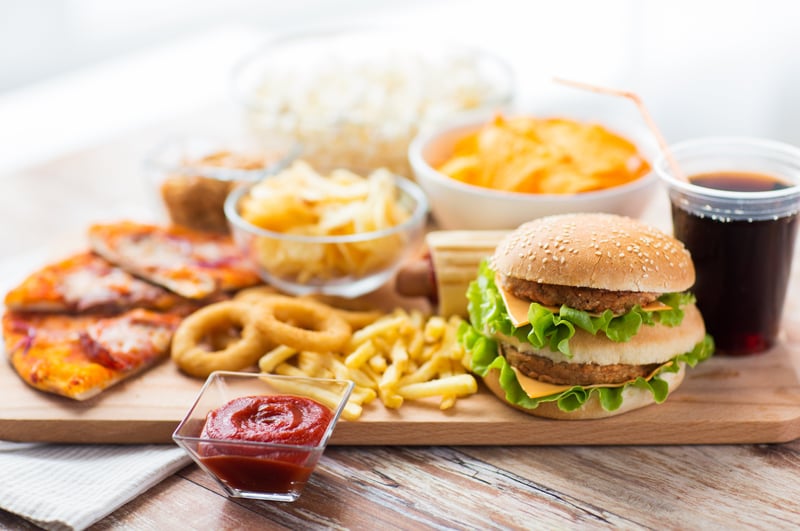Manténgase sano!

- Cara Murez
- Posted April 27, 2023
How Junk Food Ads Play on Your Emotions
Those TV ads for juicy burgers may trigger your emotions, making you believe you'll be happier if you run out and get one for yourself.
Unfortunately, a similar ad for salad does not appear to have the same emotional impact, according to new research from the University of Michigan.
"Many people think that eating highly processed foods like cheeseburgers and french fries will make them happier, and these beliefs are especially strong in people struggling to control their intake of highly processed foods," said study author Jenna Cummings, a former University of Michigan research fellow.
"Regulating fast-food advertisements and changing beliefs about how highly processed foods affect emotions could help people eat more nutritious foods," she said in a university news release.
The study found that adults who did not already hold strong beliefs about how foods affect their emotions had increases in belief that they would feel good eating these types of foods. The same was not true for salads and yogurt parfaits.
The aim of the study was to test how food ads affected food-related emotional expectations and whether these effects were different depending on individual "food addiction"symptoms.
Past research has found that someone with food addiction can have strong cravings for highly processed foods. Other symptoms include diminished control over their intake, eating too much despite negative consequences, including distress and diet-related disease.
To study the impact of fast food ads, researchers worked with 718 participants who were randomly assigned to watch 15-second video advertisements for highly processed foods, minimally processed foods or both food groups. Videos for cellphones were shown as a control.
Study participants completed questionnaires about their beliefs, feelings and behaviors.
Findings included that for participants with fewer symptoms of food addiction, watching video ads for the highly processed foods increased expectations that they would feel positive emotions while eating those foods.
It will be important for future research to examine how longer exposures to food ads change beliefs about the emotional effects of food, how long those beliefs endure and how quickly changes in beliefs affect how someone eats, said Cummings, who is now a psychology lecturer at the University of Liverpool in the United Kingdom.
The findings were published recently in the Journal of Health Psychology.
More information
The U.S. Centers for Disease Control and Prevention has more on healthy eating.
SOURCE: University of Michigan, news release, April 25, 2023

